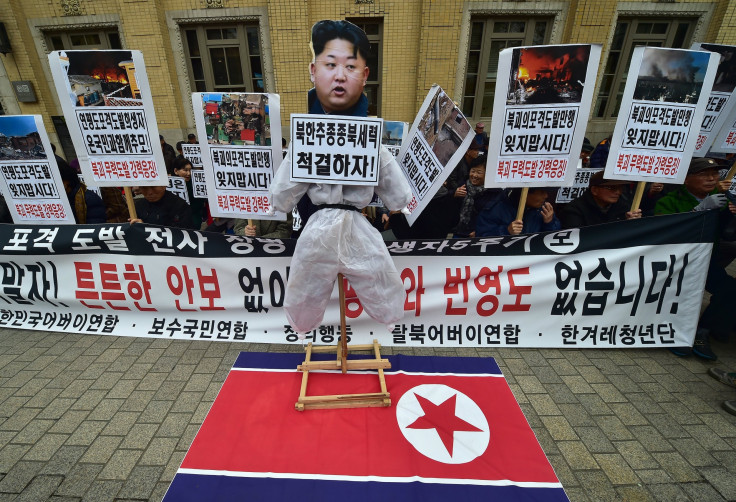North Korea Willing To Send Defectors’ Families To South Korea To Let Them Meet; UK Adds Pyongyang To Human Rights Watchlist

North Korea announced Friday that the country was ready to send to South Korea the families of 13 of its nationals who defected to South Korea earlier this month after working at a restaurant in China. The tensions between the two Koreas have escalated over the past few months after Pyongyang conducted its fourth nuclear test in January, a rocket launch in February and several missile tests as well.
So far, Pyongyang accused South Korea of abducting the defectors by luring them and had demanded their immediate return, failing which it threatened Seoul with strong action. Reports also said that defectors would face harsh punishment, including execution in some cases, on their return.
North Korea’s KCNA news agency said Friday, according to Yonhap, that family members of the 13 North Koreans, who were working at a restaurant in China’s eastern port city of Ningbo, wanted to meet them and added that Pyongyang was willing to send them to Seoul.
“The families of the abductees are eagerly asking for face-to-face contact with their daughters as they were forced to part from their beloved daughters,” a notification by the chairman of North Korea’s Red Cross Ri Chung Bok sent to South Korea said. The notification also said: “At their earnest requests, our side again seriously notifies your side of our decision to send them to Seoul via Panmunjom (a truce village).”
The letter added that Seoul should not cover up for its unethical crime under the pretext of “international practice” but should take “immediate technical measures” to arrange for the families to reunite with the defectors.
Meanwhile, the British foreign office released a report Thursday which included the Kim Jong Un regime in its list of "human rights priority countries," along with 29 others. The report slammed North Korea for rejecting the findings and recommendations stated in a report by the U.N. Commission of Inquiry. Pyongyang’s move to protest the resolutions passed by the U.N. Human Rights Council and U.N. Security Council was also criticized.
“It persisted in rejecting serious engagement with the international community and did not undertake any notable measures to improve the domestic human rights situation,” the report said.
© Copyright IBTimes 2025. All rights reserved.






















